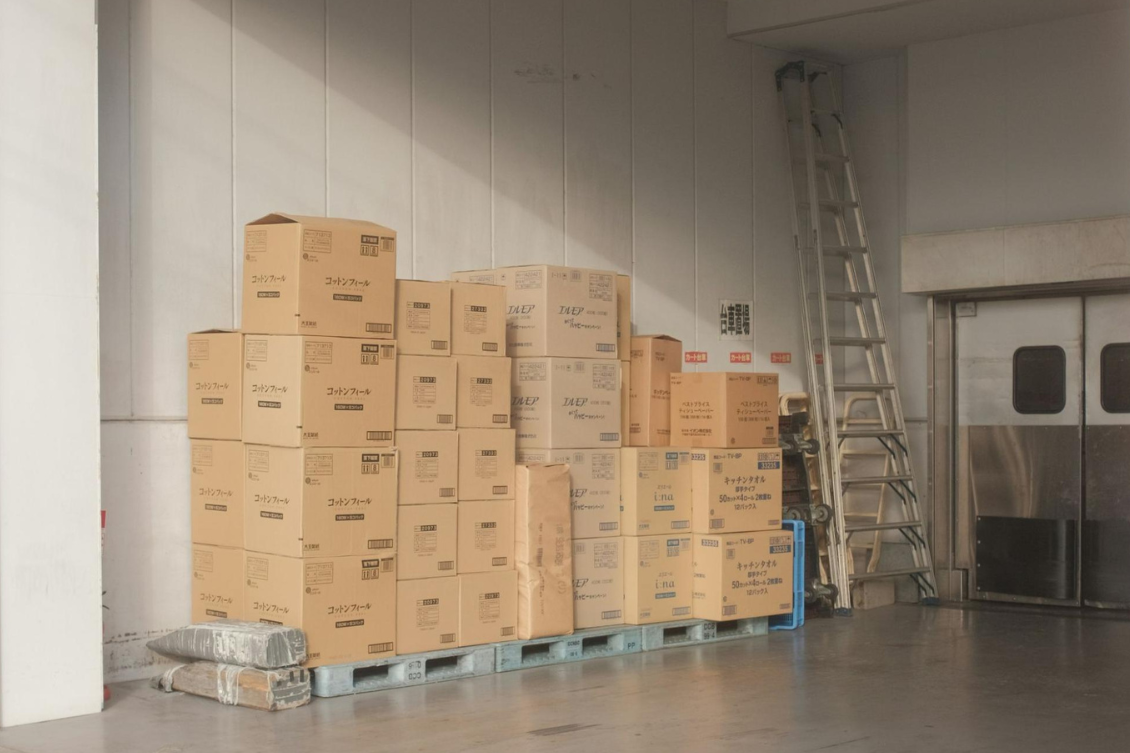
Dealing with suppliers who frequently miss deadlines can be a significant challenge for any business. When a supplier fails to deliver on time, it can create a domino effect, disrupting your production schedules, delaying customer orders, and ultimately impacting your bottom line. In today’s competitive market, consistent and timely supply chain performance is crucial to maintaining a reputation for reliability and keeping customers satisfied.
But what can you do when a supplier repeatedly misses their deadlines? The good news is that there are practical steps you can take to minimize the impact of these delays and keep your operations running smoothly. In this blog, we’ll explore several effective strategies to help you manage suppliers who miss deadlines, from identifying the root causes of delays to creating contingency plans and negotiating better terms. By implementing these strategies, you’ll be better equipped to handle late shipments and ensure your business stays on track.
Identify the Root Cause of Delays
Before jumping to conclusions or taking drastic measures, it’s essential to understand why your supplier is missing deadlines. There could be various reasons behind their delays—some within their control and others beyond it. Identifying the root cause will help you address the issue effectively rather than just treating the symptoms.
Start by engaging in an open dialogue with your supplier to gather information. Ask them directly about the challenges they face that may be contributing to late shipments. It could be a matter of production capacity, workforce shortages, supply chain disruptions, or even internal miscommunication within their team. Make sure to approach this conversation with a collaborative mindset rather than a confrontational one; the goal is to understand the problem and work together towards a solution.
Additionally, consider analyzing the data you have on past shipments. Look for patterns or trends in the delays—are they always late by a similar number of days? Do delays coincide with specific times, such as end-of-month surges or holiday seasons? These patterns can provide clues about the underlying issues, like production bottlenecks or logistical challenges.
Once you have a clearer understanding of the causes, you can tailor your approach to resolving them. If the problem is internal to the supplier, you may suggest process improvements or additional support. If the issue stems from external factors, such as transportation delays, you might explore options for alternative shipping methods or build in more lead time.
By identifying the root cause of delays, you lay the foundation for a more targeted and effective strategy to improve supplier performance and keep your business running smoothly.
Strengthen Communication and Set Clear Expectations
Effective communication is crucial when dealing with suppliers who miss deadlines. Often, delays occur due to misunderstandings or a lack of clarity around expectations. Strengthening your communication channels and setting clear, measurable expectations can significantly reduce the chances of late shipments.
Start by establishing open lines of communication with your supplier. Make it a priority to maintain regular contact, whether through scheduled meetings, email updates, or direct messaging. Clearly outline your expectations for delivery timelines, quality standards, and any specific requirements unique to your business. Document these expectations in writing and ensure they are mutually agreed upon.
It’s also helpful to implement a system for tracking and monitoring shipments. Use tools such as shared project management software or supply chain management platforms to create visibility into the status of orders. These tools can automatically send alerts or notifications for critical milestones, such as production completion or shipping departures, allowing both you and the supplier to stay on the same page.
Additionally, consider setting up a structured escalation process for when delays occur. Define what actions should be taken if a deadline is missed, including who should be notified and what steps need to be initiated to resolve the issue quickly. This proactive approach not only helps mitigate the impact of delays but also shows your supplier that you are serious about maintaining timelines.
Lastly, be clear about the consequences of repeated delays. Outline any penalties for late deliveries or incentives for on-time performance in your contract. This can motivate your supplier to prioritize your orders and adhere more closely to agreed deadlines.
By enhancing communication and setting clear expectations, you create a framework that supports timely deliveries and fosters a more accountable and reliable partnership with your suppliers.
Create a Contingency Plan
Even with the best efforts to improve communication and set clear expectations, delays may still happen. That’s why having a solid contingency plan is essential to keep your operations running smoothly when a supplier misses a deadline. A contingency plan helps you prepare for the unexpected and ensures that you’re not left scrambling when things go wrong.
Start by identifying your most critical supplies—the ones that have the greatest impact on your production or customer delivery schedules. Determine which items would cause the most disruption if delayed and prioritize them in your contingency planning. For these key materials, consider maintaining a safety stock or buffer inventory to cover any potential gaps in supply.
Next, evaluate alternative suppliers who can step in if your primary supplier fails to deliver on time. Building relationships with multiple suppliers ensures you have backup options readily available. Conduct due diligence to ensure these backup suppliers meet your quality standards and can provide the necessary quantities on short notice. You might even consider placing smaller, initial orders with these alternative suppliers to establish rapport and gauge their reliability.
It’s also wise to develop flexible production schedules that account for possible delays. This might involve adjusting your production timelines, staggering orders, or running simulations to understand how different delay scenarios would impact your operations. By proactively planning for these disruptions, you can minimize their impact on your business.
Lastly, communicate your contingency plans with all relevant stakeholders, including your team and your suppliers. Let them know what actions will be taken in the event of a delay and ensure they understand their roles in executing the plan. Being transparent about your plans not only helps build trust but also encourages your suppliers to step up their game to avoid penalties or losing business to competitors.
A well-thought-out contingency plan provides a safety net, ensuring that your business can continue to operate effectively, even when your suppliers fall short.
Negotiate Better Terms or Agreements
When dealing with suppliers who frequently miss deadlines, it might be time to revisit the terms of your agreement. Renegotiating the contract can help create a sense of urgency for your supplier to improve their performance and provide you with leverage if they continue to miss deadlines.
Start by reviewing your current contract to identify any gaps or areas where expectations are not clearly defined. Focus on aspects like delivery schedules, lead times, quality standards, and penalties for late shipments. Then, approach your supplier to discuss renegotiating these terms in a way that benefits both parties.
One effective approach is to introduce performance-based incentives and penalties. For example, consider including financial penalties for late deliveries, such as a percentage discount for each day an order is delayed. Conversely, you can offer incentives for on-time or early deliveries, like bonuses or priority for future orders. This carrot-and-stick approach can motivate suppliers to prioritize your orders and meet their deadlines more consistently.
Another tactic is to negotiate for shorter lead times or partial shipments. If the supplier struggles to meet your full order on time, they may be able to deliver a portion of the order by the deadline, allowing you to keep production running while waiting for the rest.
Consider also negotiating for more flexibility in your agreements, such as having the option to source from multiple suppliers or adjust order quantities based on their performance. This keeps your options open and reduces your dependence on a single supplier, especially if they have a history of delays.
When negotiating, make sure to maintain a collaborative tone and emphasize your long-term commitment to working together. Let your supplier know that the goal is not to impose harsh penalties but to find a mutually beneficial solution that improves reliability and strengthens your partnership.
By negotiating better terms and agreements, you create clear expectations and consequences, which can drive improved supplier performance and help safeguard your supply chain from repeated delays.
Monitor and Evaluate Supplier Performance Regularly
To effectively manage suppliers who miss deadlines, continuous monitoring and evaluation of their performance are crucial. Regular performance checks help identify issues early, provide valuable insights into supplier reliability, and enable you to take corrective actions before small problems escalate into major disruptions.
Start by establishing key performance indicators (KPIs) that measure your supplier’s reliability and efficiency. Common KPIs include on-time delivery rates, order accuracy, quality metrics, and response times to inquiries or issues. These metrics provide a clear, quantifiable view of your supplier’s performance over time and help you identify trends or recurring problems.
Use a centralized tracking system, such as supply chain management software, to collect and analyze this data. Automated tools can simplify the process of monitoring KPIs by generating real-time reports and alerts when a supplier’s performance falls below acceptable levels. These systems also provide transparency and foster accountability, as both you and your supplier have access to the same performance data.
Conduct regular performance reviews with your suppliers, ideally on a quarterly or semi-annual basis. During these reviews, share the data you’ve collected, highlight any areas of concern, and discuss potential solutions or improvements. Be open to hearing your supplier’s perspective and understanding any challenges they may be facing. A collaborative approach can help strengthen your relationship and encourage a joint commitment to resolving issues.
Set clear improvement goals with your suppliers based on the findings from these reviews. For example, if a supplier’s on-time delivery rate is below the agreed-upon threshold, establish a specific target for improvement within a defined period. Monitor their progress towards these goals, and be prepared to take further action—such as renegotiating terms or finding alternative suppliers—if their performance does not improve.
By continuously monitoring and evaluating supplier performance, you can proactively address issues, maintain high standards, and ensure that your supply chain remains resilient and efficient.
Conclusion
Managing suppliers who consistently miss deadlines can be challenging, but taking a proactive approach can help minimize the impact on your business. By first identifying the root cause of delays, you gain insight into the underlying issues and can address them effectively. Strengthening communication and setting clear expectations ensures both you and your supplier are aligned on what’s required to meet your delivery needs.
Creating a contingency plan prepares you for any disruptions while negotiating better terms or agreements provides leverage to encourage timely performance. Finally, continuously monitoring and evaluating supplier performance keeps everyone accountable and focused on improvement.
Dealing with suppliers who miss deadlines is never easy, but by implementing these strategies, you can build stronger supplier relationships, maintain your production schedules, and safeguard your business from unnecessary setbacks. Remember, a reliable supply chain is the backbone of a successful operation—so take the steps needed today to keep it running smoothly.
By: Jared Haw
Join our newsletter to receive a weekly portion of news, articles, and tips about OpenBOM and our community.










